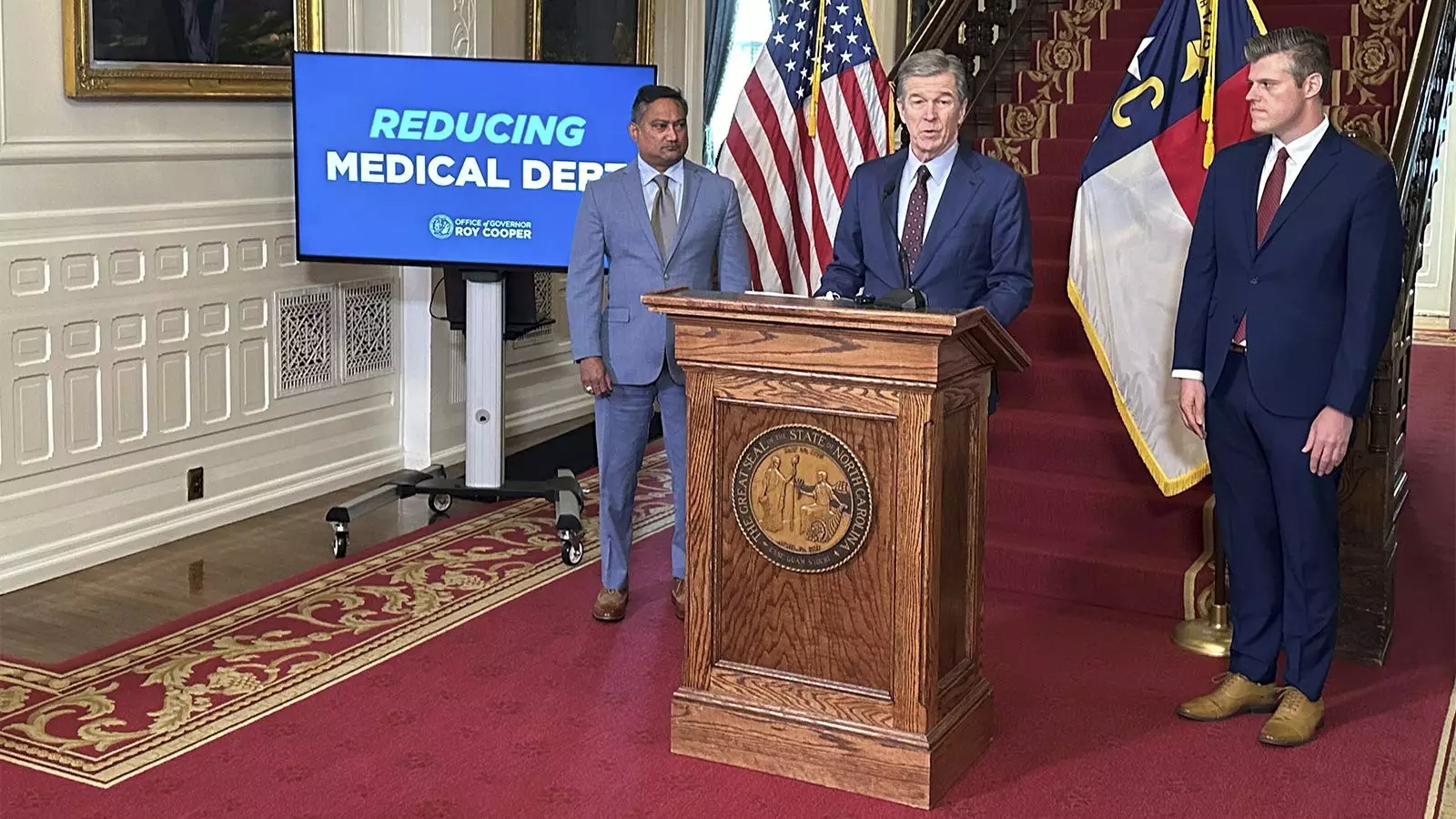North Carolina Governor Roy Cooper’s administration has received approval from the Centers for Medicare & Medicaid Services (CMS) for a groundbreaking proposal aimed at hospitals in the state. The proposal offers hospitals a financial incentive to eliminate patients’ medical debt and implement policies to prevent future liabilities. This initiative, described as a first-of-its-kind in the country, has been met with positivity and support from various leaders, including Vice President Kamala Harris.
The proposal has the potential to assist approximately 2 million low- and middle-income individuals in North Carolina in erasing an estimated $4 billion in medical debt. Governor Cooper emphasized that hospitals are unlikely to recover most of this debt, making the program a beneficial step towards improving the health and well-being of residents while ensuring the financial stability of hospitals.
Implementation and Focus on Medicaid Reimbursement
The Department of Health and Human Services (DHHS) will be responsible for executing the plan, which focuses on enhanced Medicaid reimbursement payments to eligible hospitals through the Healthcare Access and Stabilization Program. Participating hospitals, which include acute-care, rural, or university-connected facilities, can receive increased reimbursement by offering to eliminate medical debt from current Medicaid enrollees and low-income individuals.
Hospitals enrolled in the program are required to not only cancel medical debt but also provide discounts on medical bills for low- and middle-income patients. Additionally, they must automatically enroll individuals in charity care programs, refrain from selling debt to collectors, and cap interest rates on medical debt. These measures aim to alleviate the financial burden on individuals and promote equitable access to healthcare services.
Upon the announcement of the proposal, the North Carolina Healthcare Association expressed the need for more time to review the details and awaited feedback from the federal government. While some hospitals have engaged positively with the initiative, others have shown reluctance. Debt relief for individuals under the program is anticipated to occur in 2025 and 2026, highlighting the long-term impact of this initiative. With Governor Cooper’s term coming to an end, the survival of the program may hinge on the outcome of the upcoming gubernatorial election.
National and Local Efforts to Address Medical Debt
Various state and local governments have utilized federal funds, such as the American Rescue Plan, to assist in purchasing and canceling residents’ medical debt. Vice President Kamala Harris’s support for North Carolina’s program aligns with broader efforts at the national level, including collaborating with President Joe Biden to forgive substantial amounts of medical debt and advocating for its elimination.
North Carolina’s innovative proposal to incentivize hospitals to eliminate medical debt represents a significant step towards addressing healthcare affordability and equity. By prioritizing the financial well-being of individuals and the sustainability of healthcare facilities, this program sets a precedent for other states to follow suit in tackling the pervasive issue of medical debt in the nation.



Leave a Reply